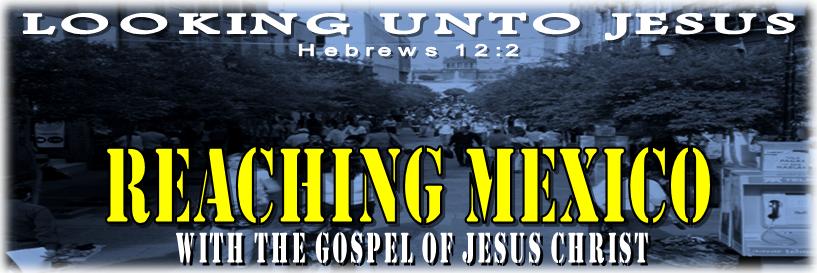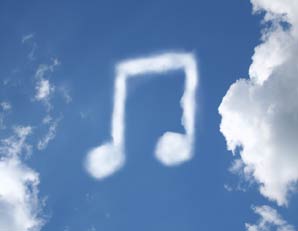Does the Bible
affirm, like so many people today, that musical sounds, apart from any lyrics,
are neutral and harmless? Let’s explore some biblical passages that describe
the astounding impact that music can have on the human soul…and even on the
spiritual realm.
1 Samuel 16:14-23.
Disobedient and rebellious Saul was rejected by God as king of Israel. As a
result, “the Spirit of the LORD departed from Saul, and a harmful spirit from
the LORD tormented him” (v.14). When Saul’s servants realized this, they
suggested to their king: “Let our lord now command your servants who are before
you to seek out a man who is skillful in playing the lyre, and when the harmful
spirit from God is upon you, he will play it, and you will be well” (v.16).
With his permission, they went and fetched David, a young shepherd who was
famed among the servants for being “skillful in playing, a man of valor, a man
of war, prudent in speech, and a man of good presence, and the LORD is with
him” (v.18). Upon coming into Saul’s service, he found favor in the king’s
sight; and the last verse of this chapter reads, “And whenever the harmful
spirit from God was upon Saul, David took the lyre and played it with his
hand. So Saul was refreshed and was well, and the harmful spirit
departed from him” (v.23).
David was the ideal example of the Lord’s musician: a God fearing, humble and
blameless young man of excellent reputation—and as an added benefit, he was
also a highly skilled instrumentalist. And most important of all, the Lord was
with Him. All these traits made him a powerful musician. Notice that in order to
drive away the demonic spirit from Saul, David merely played his instrument. There is no mention whatsoever in this
passage of any singing on his part. The
melodious sounds of David’s music were powerful enough to drive out demons!
2 Kings 3:15-19.
The king of Moab rebelled against Jehoram, the king of Israel, refusing to pay
him tribute. In hopes of recapturing this rebel nation and once again
subjecting them under the rule of his kingdom, Jehoram rallied up all the
warriors in Israel. The king of Edom and Jehoshaphat, the righteous king of
Judah, also joined him. In a dire circumstance, Jehoshaphat desired to inquire
of a prophet of the Lord for guidance. They came to Elisha the prophet. His instructions: “‘bring me a musician.’ And
when the musician played, the hand of the LORD came upon him” (v.15). He
then declared to them the Lord’s words.
Amazingly, the Lord came upon Elisha only after “the musician played”. Worshipful
tunes called down the presence of the Lord!
Although divine prophecy did not always occur this way, in
the Old Testament there is an apparent connection between music and prophetic
utterances. In Israel, the prophetic ministry involved the use of music, and
the worship ministry was prophetic by nature. Some other examples of this:
-1 Samuel 10:5-6 (Samuel’s
prophecy to Saul after anointing him as king):
“After that you shall come to Gibeath-elohim, where there is
a garrison of the Philistines. And there, as soon as you come to the city, you
will meet a group of prophets coming down from the high place with
harp, tambourine, flute, and lyre before them, prophesying. Then the
Spirit of the LORD will rush upon you, and you will prophesy with them and
be turned into another man.”
-1 Chronicles 25:1-7 (King David’s prophetic
“worship team”):
“David and the chiefs of the service also set apart for the
service the sons of Asaph, and of Heman, and of Jeduthun, who prophesied
with lyres, with harps, and with cymbals. The list of those who did the
work and of their duties was: Of the sons of Asaph: Zaccur, Joseph, Nethaniah,
and Asharelah, sons of Asaph, under the direction of Asaph, who prophesied
under the direction of the king. Of Jeduthun, the sons of Jeduthun:
Gedaliah, Zeri, Jeshaiah, Shimei, Hashabiah, and Mattithiah, six, under the
direction of their father Jeduthun, who prophesied with the lyre in
thanksgiving and praise to the LORD. Of Heman, the sons of Heman: Bukkiah,
Mattaniah, Uzziel, Shebuel and Jerimoth, Hananiah, Hanani, Eliathah, Giddalti,
and Romamti-ezer, Joshbekashah, Mallothi, Hothir, Mahazioth. All these were the
sons of Heman the king's seer, according to the promise of God to exalt
him, for God had given Heman fourteen sons and three daughters. They were
all under the direction of their father in the music in the house of the LORD
with cymbals, harps, and lyres for the service of the house of God. Asaph,
Jeduthun, and Heman were under the order of the king. The number of them along
with their brothers, who were trained in singing to the LORD, all who were
skillful, was 288.”
Godly people were not the only ones in the Bible who used
music for spiritual purposes, however. In Daniel
3, King Nebuchadnezzar used music as a tool to condition the people of his
kingdom to worship an enormous golden image he had made:
“ And the herald proclaimed aloud, ‘You are commanded, O
peoples, nations, and languages, that when you hear the sound of the horn,
pipe, lyre, trigon, harp, bagpipe, and every kind of music, you are to fall
down and worship the golden image that King Nebuchadnezzar has set up’”
(vv.4-5).
As the aforementioned passages clearly demonstrate, instruments
were used by both the Israelites and the pagan nations for religious purposes.
The undeniable link between music and the spiritual realm is
not limited to Scripture, however. Numerous extra-biblical records throughout
history also demonstrate that musical arrangements were used by peoples,
nations, kingdoms and empires the world over to attempt to channel into the
world of the “divine”. Across time and just about in every culture without
exception, songs, tunes, melodies, symphonies and compositions have been used
as a spiritual exercise.
And as such, music is an immensely powerful tool—capable of
ushering in the presence of the Holy Spirit at times (God permitting, of
course) …but also, inversely, having even the power to invoke demonic spirits.
A myriad number of musicians seem to agree that music is spiritual in nature.
Take, for instance, the following quotes by well-known artists:
“Music is the mediator between the spiritual and the sensual life.”
-Ludwig van Beethoven
“When the Siberian shaman gets ready to go into his trance,
all the villagers get together... and play whatever instruments they have to
send him off [into a trance state and possession]. … It was the same way with
The Doors when we played in concert... I think that our drug experience let us
get into it... [the trance state] quicker.... It was like Jim was an electric
shaman and we were the electric shaman’s band, pounding away behind him.
Sometimes he wouldn’t feel like getting into the state, but the band would keep
on pounding and pounding, and little by little it would take him over. …I could
send an electric shock through him with the organ. John could do it with his
drumbeats.”
–Ray Manzarek, keyboardist for The Doors, speaking of Jim Morrison (No One Here Gets Out Alive, pp. 158-60)
“I’ve always considered that there was some way where we
were able to channel energy, and that energy was able to be, from another
source, if you like, like a higher power or something, that was actually doing
the work. I’ve often thought of us just being actually just the earthly beings
that played the music because it was uncanny. Some of this music came out
extremely uncanny”
Bill Ward, drummer for Black Sabbath (Black Sabbath: An Oral History, p. 7).
“We receive our songs by inspiration, like at a séance”
-Keith Richards, guitarist for The Rolling Stones (Rolling Stone, May 5, 1977, p. 55).
“They [The Beatles] were like mediums. They weren’t
conscious of all they were saying, but it was coming through them”
-Yoko Ono (The Playboy Interviews with
John Lennon and Yoko Ono, Berkeley, 1982, p. 106.).
“It’s amazing that it [the tune to ‘In My Life’] just came
to me in a dream. That’s why I don’t profess to know anything. I think music is
very mystical.”
-John Lennon (“The Beatles Come Together,” Reader’s
Digest, March 2001).
“...it’s like I’m on automatic pilot. By the time we’re
halfway through the first number someone else is steering me. I’m just along
for the ride. I become possessed when I get on stage.”
Angus Young, lead guitarist for AC-DC (Hit
Parader, July 1985, p. 60).
And here is an interesting quote about music and religion by a neuroscientist:
"As I've written before in books and blogs, I am an atheist
and yet I have an empathy for religion. Intellectually, I do not think there is
a literal God. Emotionally, I am not anti-religious. One of the reasons why I
feel an emotional empathy for religion is that it reminds me of my attitude
toward music.
Many of the moral generalizations that have been applied to
religion apply just as well to music. Music is a cultural phenomenon. It
intensifies emotions. It helps cement communities. It can range from the
terroristic to the sublime. The Nazis after all had nationalistic Nazi music to
fire up their citizens, and in more recent decades we've seen cop killer music.
On the other end of the spectrum, the rousing music of the civil rights
movement advocated for equality, and Beethoven's Ninth was a politically and
socially radical statement about the joy of human solidarity.
Yet something else harder to put into words, something that
goes beyond cultural impact, unites music and religion. When I am listening to
certain pieces of music I feel a reverence creeping over me, an awe that has a
spiritual quality. For myself, classical music does it. For others, of course,
different styles of music trigger the same reverential reaction."
- Dr. Michael Graziano, "Why is Music a
Religious Experience?" (article)
The list of quotes could go on and on.
Given all the clear evidence already mentioned in this
series, it would be an utterly foolish and futile attempt for anyone to continue to insist that musical sounds
are in any way, shape or form “neutral”.
Well, then, having gotten all this information out of the
way, I will next address a question that you, dear reader, may be asking: “If this is all true, THEN WHAT AM I SUPPOSED TO LISTEN TO?”
If music is
not neutral and therefore not all music is appropriate—what kind of music is appropriate to bring to God in
worship?
In the next several entries of this series, I will first present some general
biblical principles for godly worship. Then, I will tackle some of the modern
subcultures and genres of our day (rock, hip hop, metal, etc), and we will
together discover if they fit the Christian worldview and are appropriate as
worship before a holy God. Afterwards, I will take on some objections by
proponents of the styles of music mentioned above.


